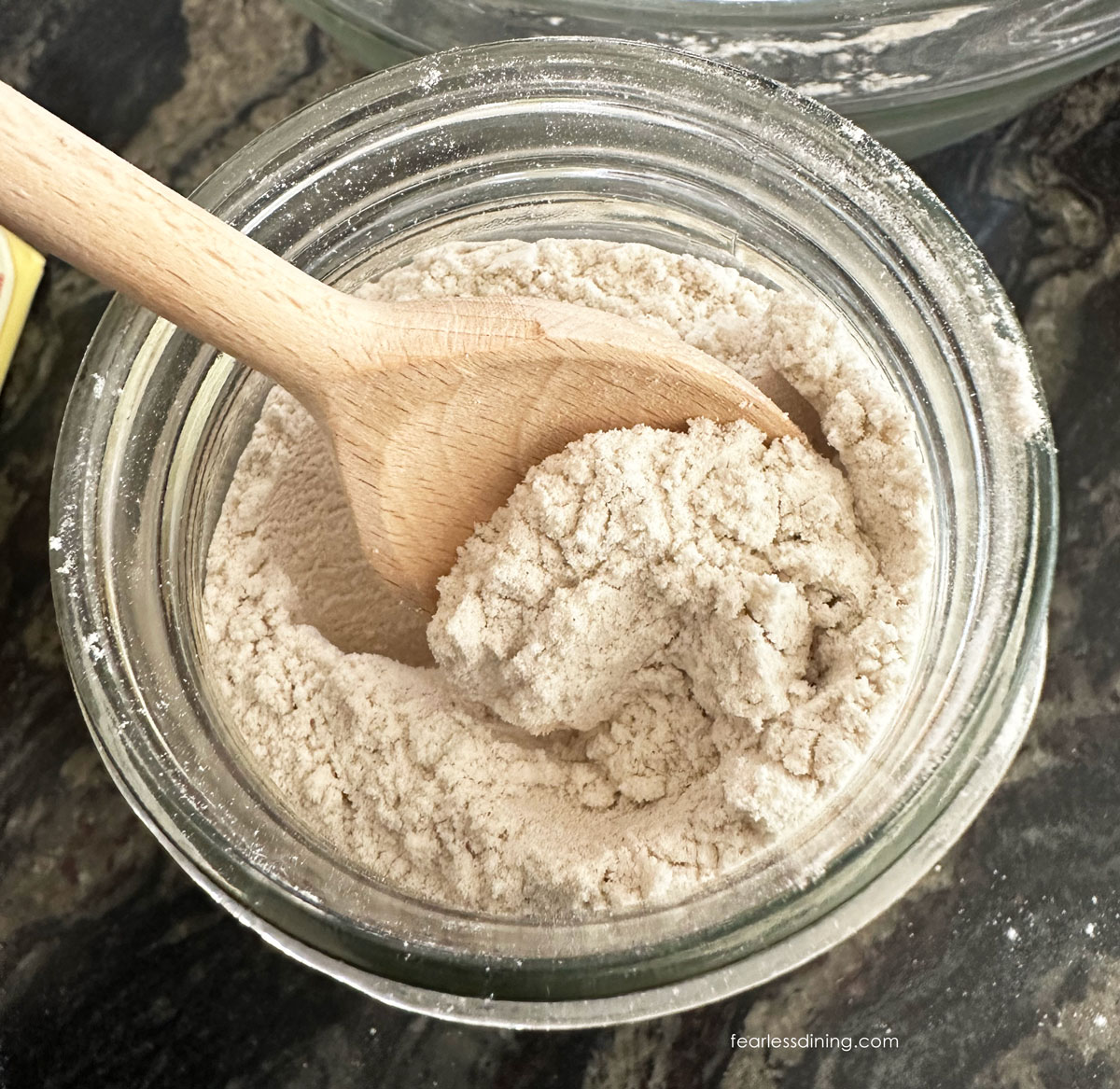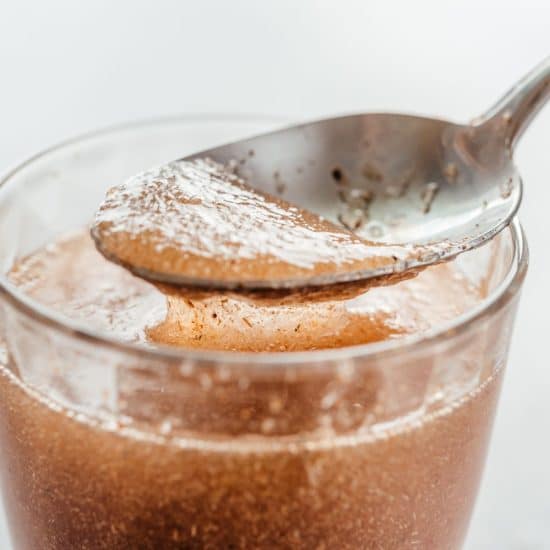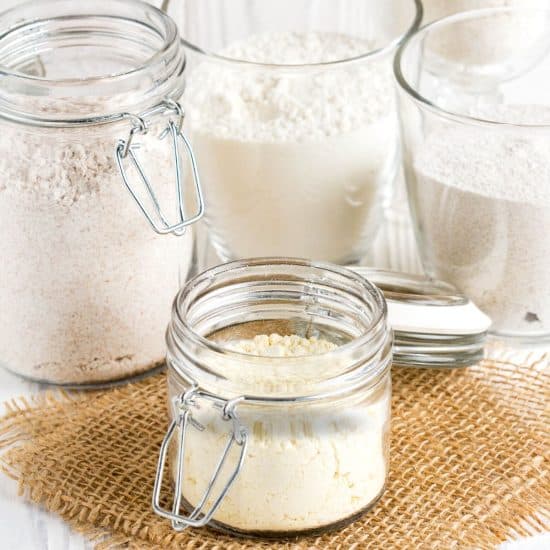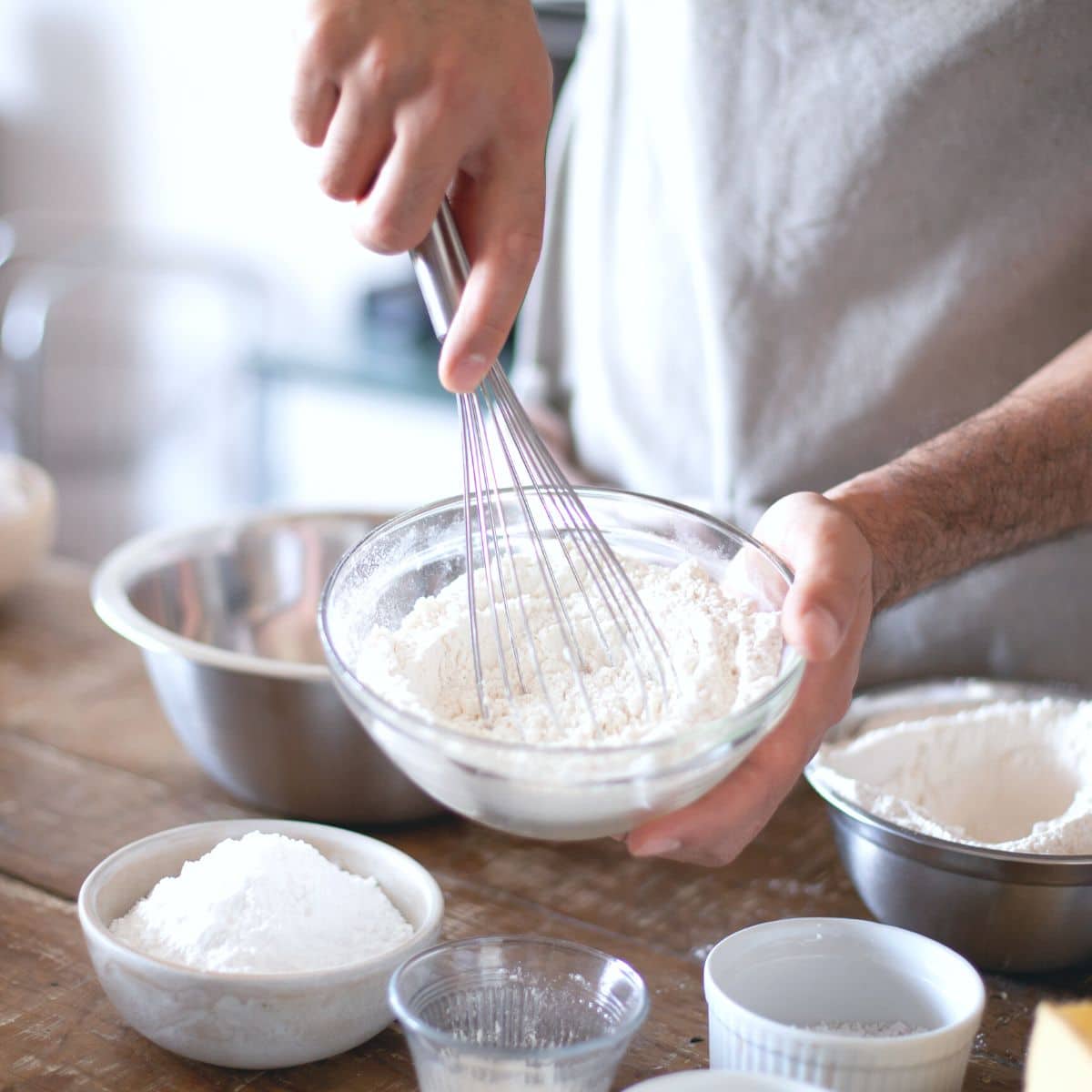If you have wondered what different gluten-free flour blends weigh, I decided to find out! Hopefully, this will help guide you if you prefer to weigh your ingredients. If you have a gluten-free flour blend that is not on this list, please measure a cup and drop a comment with the gram measurement. I would be grateful!
This post may contain affiliate links. Please read our Disclosure Policy.

As an important caveat, please know when my recipe calls for a measurement, like a cup of a gluten-free flour blend, I am talking about the blends I tested in that recipe. The blends I did not test are NOT interchangeable in my recipes without some tweaking.
Use this as a guide if you use a different flour blend, but remember the rule below! For more information, please read my article on Why Gluten-Free Flour Blends Vary.
📢 Sandi says: Every gluten-free flour blend has a different starch-to-grain ratio. The brand of gluten-free flour you use will affect the moisture of the batter. If your dough or batter is too runny, add more flour, and if it is too thick, add more liquids.

Email This Recipe To Me!
Flour Blends and Their Weights:
If you will notice when you look at how many grams one cup of each blend weighs, you will see they all vary widely. As I explained above, every gluten-free flour blend has a different starch-to-grain ratio. Starches weigh less than grains, and some blends are starchier than others.
You can read more about these blends and how I use them in my Amazon Store Favorite Flour Blend List. You can also order any you want to try, except the Trader Joe’s and Walmart’s blends.
- King Arthur Measure for Measure: 1 cup = 145.7 grams
- Bob’s Red Mill 1:1 Blend: 1 cup = 152.2 grams
- Namaste Organic Gluten Free Flour Blend: 1 cup = 133.6 grams
- Cup4Cup: 1 cup = 148.9 grams
- Walmart Great Value Gluten Free Flour Blend: 1 cup = 165.7 grams
- Trader Joe’s Gluten Free Flour Blend: 1 cup = 139.6 grams
- Authentic Foods Steve’s Gluten Free Bread Blend: 1 cup = 140.2 grams

My Favorite Digital Scale:
I absolutely love my Etekcity Digital Scale. It is durable and can measure grams, pounds, ounces, etc. It is easy to clean, and yes, it survived getting dropped once or twice!
Frequently Asked Questions:
In all honesty, I don’t weigh my flour often. I prefer cup measurements..but if the different blends were more similar in weight, I would use a scale and weigh flour all of the time.
I recommend using either the spoon or the leveling method to measure your gluten-free flour.
Spoon Method: You can also use a spoon to fill the measuring cup. Use a knife to level along the top to remove the extra flour. Leveling Method: Fill the measuring scoop with flour, but do not pack it. Use a knife to scrape along the top to remove the extra flour.
If the gluten-free flour bag doesn’t have a zipper seal, store it in an airtight container. If the bag doesn’t seal shut completely, put the whole bag into a gallon-sized zipper-style bag. You can store the flour in the refrigerator or freezer, but it is very important to let the flour blend warm to room temperature before using it in a recipe.
Many 1:1 blends (like King Arthur Measure for Measure and Bob’s 1:1) do not work well in yeast recipes. I like Cup4Cup and Authentic Foods Steve’s GF Bread Blend in yeast recipes. My homemade gluten-free flour blends (all-purpose, rice-free, sorghum-free, and whole grain) all work great in yeast recipes. You can read about what types of flour work best in what types of recipes in the Related Reading Section below for more information.
Gluten-Free Baking-Related Reading

Why Binders Are Important In Gluten-Free Baking

The Best Gluten Free Flour Blends – And how to use them!
Do you have a favorite gluten free blend I didn’t list?
We would love to hear if you use a flour blend I don’t have. Please weigh a cup and leave a comment with the gram measurement; I would be grateful. Thank you!



Hi Sandi. Can you tell me how many grams your GF Blends weigh per cup? In particular, the AP version, which I use often. By the way, when I make your AP flour blend, I do not add the 3T of Psyllium to it; I prefer to add the Xanthan Gum per recipe instead.
Hi Mary, I haven’t weighed them by cup, only total for the recipe. The next time I make the blends, I will try to grab a cup measurement for you.